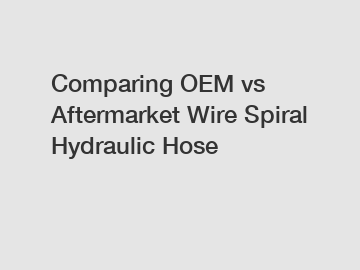Uncovering the Impact of PCR Plastics
## Uncovering the Impact of PCR Plastics.
1. What is PCR plastics?
PCR plastics, also known as post-consumer recycled plastics, are materials that have been recovered and recycled from post-consumer products. These plastics are sorted, cleaned, and processed to create new products, reducing the need for virgin plastics and decreasing waste.
2. How do PCR plastics impact the environment?
PCR plastics help to reduce the demand for new plastics, which reduces the extraction of raw materials and the energy required for manufacturing virgin plastics. This can lead to a decrease in greenhouse gas emissions and help mitigate the negative environmental impact of plastic production and disposal.
3. Are PCR plastics as durable as virgin plastics?
While PCR plastics may not have the exact same properties as virgin plastics, advances in technology have allowed for the development of high-quality PCR materials that are suitable for a wide range of applications. These recycled plastics can be just as durable and functional as virgin plastics, while also offering environmental benefits.
4. How can consumers support the use of PCR plastics?
Suggested reading:Ultimate Guide: Recycled Polypropylene Plastic Pellets Price
7 Effective Strategies to Reduce Plastic Recycling
Revolutionizing Fashion Industry: Pet Plastic Chic?
Revolutionizing PCR: Are Biodegradable Materials the Future?
What is PCR plastic and its benefits?
PCR Plastic: The Sustainable Solution We Need?
Rubber & Plastics
Consumers can support the use of PCR plastics by choosing products made from recycled materials, as well as properly recycling their own plastic waste. By creating demand for PCR plastics, consumers can incentivize businesses to incorporate more sustainable materials into their products and packaging.
5. What are the challenges associated with using PCR plastics?
Challenges associated with using PCR plastics include issues with contamination, sorting, and processing, as well as ensuring consistent quality and performance. However, ongoing research and development efforts are addressing these challenges and working towards creating a more sustainable and circular economy for plastics.
6. What industries are leading the way in adopting PCR plastics?
Various industries, including packaging, automotive, electronics, and fashion, are increasingly incorporating PCR plastics into their products. Companies are recognizing the importance of sustainability and are investing in innovative solutions to reduce their environmental footprint by utilizing recycled materials.
In conclusion, PCR plastics play a crucial role in reducing the environmental impact of plastic production and waste. By understanding the benefits and challenges associated with PCR plastics, individuals and businesses can work together to create a more sustainable and circular economy for plastics. By supporting the use of recycled materials and promoting recycling practices, we can all contribute to a cleaner and healthier planet.
For more information, please visit Post-Consumer Recycled Plastics, Recycled Polystyrene, Post Consumer Polypropylene.
Suggested reading:The Benefits of Using Recycled Polystyrene Plastic Material for Sale
The Benefits of Using Recycled Polypropylene Plastic in Hong Kong
Revolutionize Waste: Recycled Polystyrene Pellets Service
4 Pieces of Advice to Choose Post Consumer Plastic in Hong Kong
Is Paint Protection Film Worth It? The Key to Protecting Car Paint
Mastering Hydraulic Hose Installation: Essential Guidelines
Unlock the Power of 100r2: Answers to Google Users' Burning Questions









